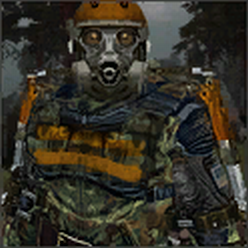
Voice acting is solid as well, with some Russian retained outside of direct conversations.

Veteran and Master are still very tough, however, with enemies occasionally reverting to pinpoint grenading techniques, although nowhere near the extent of Clear Sky.Ĭall of Pripyat is a huge improvement on both originals in translation terms, too, despite some quite jarring incidental chatter from NPCs who are more frathouse than grizzled soldier. The progression is empowering, and although enemies like the mutated dwarf Burers and Chimera will test you, difficulty seems to have been lowered a little on the default 'Stalker' setting. By the end of the game you'll likely be rocking a pretty serious armoured exoskeleton and assault rifle combo, with sniper-weapons and piles of healing equipment in your pack. Decent equipment is available much earlier, too - there's no more wandering around for hours with a sawed-off and a trenchcoat. The RPG elements gel extremely well, the branching and exclusive paths of upgrades allowing you to modify kit according to your play style. To balance that, weapons and armour that are heavily degraded can't be sold until repaired. Repairs and modifications are pricey too, but making money is nowhere near as hard as it has been in the last two games, with artefacts now fetching extremely high prices. The weapon and suit repair and upgrade system has been polished nicely, with technicians requiring sets of tools to perform the modifications which increase rates of fire, accuracy or armour ratings. The small boosts to resistance you'll gain from them will probably only see any use at the beginning before you're kitted out with a decent suit, but they're a nice addition.

Meds are pre-emptive items which increase resistances, load-capacity or healing rate, even allowing you to survive the lethal radioactive emissions which periodically sweep the Zone. In preparation for this dangerous harvest, you'll probably want to take advantage of one of Call of Pripyat's new toys, the medication system.


 0 kommentar(er)
0 kommentar(er)
